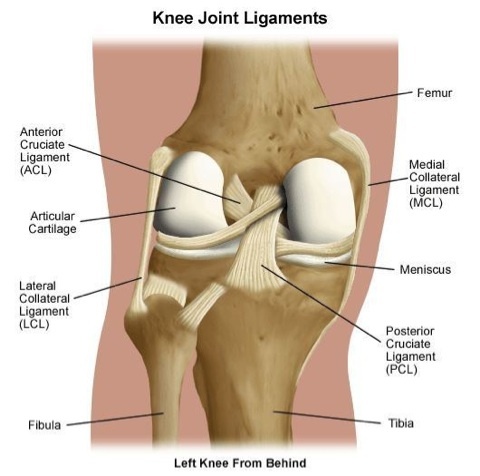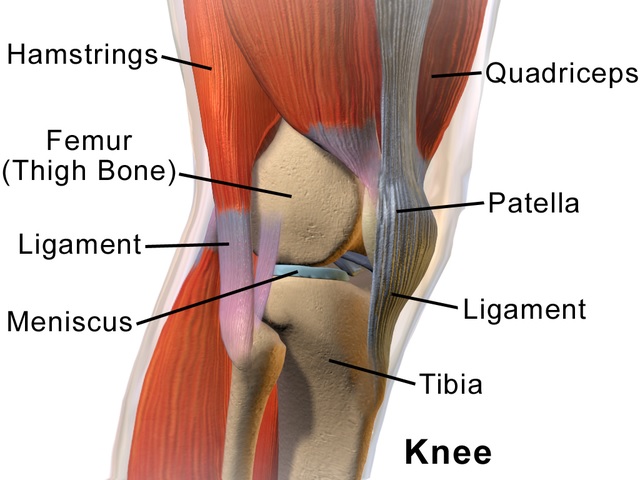Roohealthcare.com – What are the symptoms of a Knee Ligament Injury? Most knee ligament injuries will be accompanied by similar symptoms, but the degree of damage will determine the severity of your symptoms. A completely torn ligament may cause more serious symptoms, such as a popping or snapping sensation. Your doctor will examine your knee to determine the extent of damage and discuss treatment options with you. However, if your symptoms are mild, you can still see a doctor to receive further evaluation.
Two Types of Knee Ligament Injuries
There are two types of knee ligament injuries: grade 1 and grade 2. The first type of knee ligament injury, known as a sprain, involves an inflamed part of the ligament. A grade 2 knee ligament injury shows significant pain and swelling over the ligament. The knee joint also appears lax. In addition, this type of injury may result in laxity or instability of the knee joint. Knee ligament injuries are often the result of a sudden movement or direct blow to the knee.
Damage to the inner part of the knee can cause a medial meniscus tear. Damage to the lateral menisci can also lead to a tear in the lateral meniscus. Overuse and age can make these ligaments dysfunctional. Some injuries may result in knee joint dislocation, which is severe damage to the anatomical components of the knee, including blood vessels and nerves. Consequently, surgery is necessary to repair the damage and restore stability to the knee.

Immediately after a knee injury, ice should be applied to the affected area. It is usually applied for ten to 30 minutes. Do not leave it on for longer than 30 minutes, as the ice may burn your skin. You may also opt for an alternative to an ice-pack: a bag of frozen peas. Applying ice may decrease the amount of blood flowing to the injured ligament, reducing pain and swelling. It’s important to follow the instructions of your doctor and adhere to the recommended timeframes.
Knee Ligaments are Made of Strong Elastic Tissue
When you suffer a Knee Ligament Injury, you must consult a medical professional immediately to ensure that you are not causing yourself further damage. Knee ligaments are made of strong, elastic bands of tissue that connect the bones of the knee. They are crucial for the stability of the knee, and if they are injured, they will need to be repaired as soon as possible to avoid complications. If your symptoms are severe, consult your doctor immediately.
ACL and PCL injuries are the most common types of knee ligament injuries. They can occur during sports activities, especially those involving sudden directional changes. Sudden changes in direction or landing can cause an ACL tear. Injuries to these ligaments also affect the lower leg, including hockey, basketball, and football. It is possible to hear a popping noise at the time of the injury. In addition to pain, knee-buckling may be a sign of a torn ligament.

Physical examinations may reveal signs of inflammation and swelling of the knee. A comprehensive medical history is helpful in making a correct diagnosis. Your healthcare provider may recommend an x-ray to rule out other causes of knee injury. An x-ray will validate the diagnosis of a LCL injury. If you have experienced any of the above symptoms, your healthcare provider will most likely suggest treatment. The right diagnosis may save your life.
Necessary Medical Treatment When You Have a Knee Injury
If you’ve recently sustained a knee injury, you should seek medical treatment immediately. Depending on the severity of your injury, a doctor may recommend surgery to replace the damaged ligament. Surgery will often involve reattaching the damaged ligament with a healthy tendon from the leg. Knee ligament injuries require a visit to your GP or emergency room. If you are experiencing any of these symptoms, you should seek medical attention immediately.
In the case of grade 1 and grade two tears, conservative treatments may be sufficient for healing. Physical therapy, stretching, and home exercises may be necessary to restore full knee function. Crutches and a hinged knee brace may be recommended to prevent sideways movements. If your knee ligament injury is a Grade 2 tear, you will need to seek medical treatment. The recovery time for Grade 2 knee injuries can range from a few weeks to a few months.

The symptoms of LCL tears include pain, swelling, and bruising. The LCL is a band of tissue that connects the bones of the lower leg to the thigh. The LCL provides stability to the knee joint. Anyone of any age can suffer an LCL tear, but the highest incidence is among adults between the ages of 20-34 and 55-65. Males and females are equally prone to this condition.